
July 27

1914 Countdown to War: From the text of the reaction of Sir Edward Grey, British Foreign Secretary, to news that the Austro-Hungarian government regarded Serbia's reply to their ultimatum of 23 July 1914 unsatisfactory:
Count Mensdorff told me by instruction to-day that the Serbian Government had not accepted the demands which the Austrian Government were obliged to address to them in order to secure permanently the most vital Austrian interests. Serbia showed that she did not intend to abandon her subversive aims, tending towards continuous disorder in the Austrian frontier territories and their final disruption from the Austrian Monarchy. Very reluctantly, and against their wish, the Austrian Government were compelled to take more severe measures to enforce a fundamental change of the attitude of enmity pursued up to now by Serbia. As the British Government knew, the Austrian Government had for many years endeavoured to find a way to get on with their turbulent neighbour, though this had been made very difficult for them by the continuous provocations of Serbia. The Sarajevo murder had made clear to everyone what appalling consequences the Serbian propaganda had already produced. [For further details, Click here.]

1915 World War I: List Regiment: Gefreiter Adolf Hitler's 16 Reserve Infantry Regiment continue to occupy a position at Fromelles—pictured above in a drawing by Hitler—on a level field with water channels, willow trees and willow stalks; in the distance towards the enemy lines lies an insignificant wood with barbed wire entanglements. Under the direction of their defense-minded commander, Lieutenant General Gustav Scanzoni von Lichtenfels, the regiment works ceaselessly day and night to further fortify their position at Fromelles while fighting off repeated assaults by the enemy. [For further details, Click here.]
1916 World War I: Various:
Germans execute British seaman Captain Charles Fryatt:
The Brussels, a British merchant vessel, was intercepted by the Germans during one of the ship's regular twice-weekly crossings from Harwich in Britain to Holland. Fryatt and his crew were arrested and taken to Ruhleben prison camp outside Berlin. Later transported to Belgium to stand trial, Fryatt was accused of acting as a "pirate"—the incident in question occurred the previous March 28, when Fryatt, his ship under attack by a German U-boat submarine, turned the Brussels around and attempted to ram the German craft. The submarine fled, and Fryatt's courageous conduct was honored by the British Admiralty with a gold watch.
The German court martial in July, however, convicted Fryatt of attempting to attack the submarine although he himself was not a combatant. In what was condemned by the British as an act of savagery, even during wartime, the Germans executed Fryatt on July 27. In terms of anti-German propaganda, Fryatt's trial and execution undoubtedly worked in the Allies favor: in the United States—neutral in the conflict as of yet—The New York Times called his death a "deliberate murder." As John Ketchum, a Canadian civilian who had been studying music in Germany when war broke out and who had been interned at Ruhleben with Fryatt and his crew, recalled: "The judicial murder of a man who had lived at Ruhleben, if only for a month, caused deep shock and anger, and brought the war home to the camp as nothing had done before."
Much later, some 10 days after the signing of the Treaty of Versailles in late June 1919, Fryatt's body was returned home to Britain, where a memorial service was held in London commemorating his heroic act; the body was subsequently reburied in British soil at Dovercourt. (History.com)
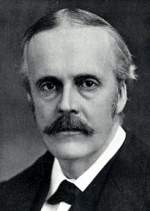
Arthur Balfour on the Execution of Captain Fryatt:
If any desire yet further proof of the value which the Germans really attach to their "victorious" fleet I advise them to study the German policy of submarine warfare. The advantage of submarine attacks on commerce is that they cannot be controlled by superior fleet power in the same way as attacks by cruisers. The disadvantage is that they cannot be carried out on a large scale consistently with the laws of war or the requirements of humanity. They make, therefore, a double appeal to German militarism; an appeal to its prudence and an appeal to its brutality.
List Regiment: Gefreiter Adolf Hitler endures trench warfare in Flanders (Artois) with 3 Company, 16 Reserve Infantry Regiment. [For further details, Click here.]
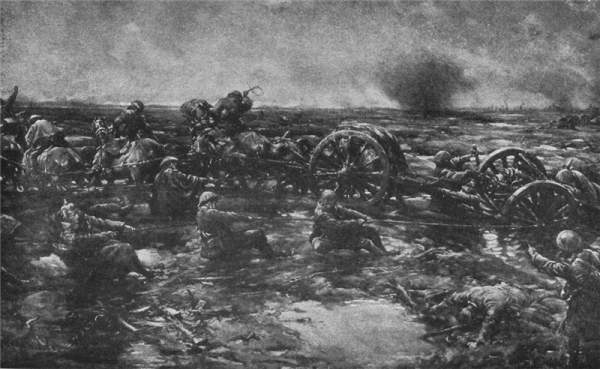
1917 World War I: List Regiment (July 22-August 3): Dispatch Runner Gefreiter Adolf Hitler serves at the front with 3 Company, 16 Bavarian Reserve Infantry Regiment during Phase 2 operations in Flanders. Most of their time in the trenches gas masks are worn, while English bombers and tanks—a new terror witnessed for the very first time by most—attempt to advance over a long front through seas of mud. [For further details, Click here.]
1918 World War I: Various:
First concrete barge: The Socony 200 is launched:
In 1918, Socony 200, the first concrete barge, was launched into Flushing Bay, N.Y. The hull was constructed of concrete with steel-reinforcement by Fougner Concrete Shipbuilding Company. The Socony name is the acronym of the Standard Oil Company of New York, the owner. The barge, designed to carry oil, was 98 feet long, 31 feet wide and 91 feet deep. Increased structural weight as a disadvantage of concrete as a construction material is offset by the saving in cost of construction."
List Regiment: (July 20-August 4):Gefreiter Adolf Hitler's 16th RIR continues to build a new line of defenses on the site of the failed Second Battle of the Marne. [For further details, Click here.]
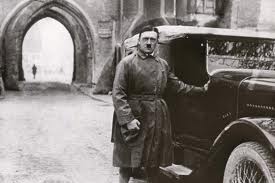
1922 Weimar: Adolf Hitler gets an early release from Stadelheim Prison in Munich. He had been sentenced on January 3rd for an on-stage attack upon the person of opponent Otto Ballerstedt. (See June 24) (Maser)
1932 Church and Reich: The Reverend Wilhelm Senn, one of the first Catholic priests to join the National Socialist Party, is suspended by the Catholic Church. Senn has broken a promise to submit all future writings to the censorship of the Church. Note: An article written by Senn earlier in the year had declared Hitler and his movement to be "instruments of divine providence." (THP)
1933 Various:
Church and Reich: Hitler tells Winifred Wagner that once he and the Nazis have achieved full power he will dissolve all the monasteries and confiscate church property. (THP)
[See: Was Adolf Hitler a Christian?]London: World Monetary and Economic Conference ends in failure: Roosevelt's lack of support is largely responsible.
Once again, the US government was demonstrating a heedless disregard for the international impact of its actions. The (gold) purchase program forced deflationary adjustments on remaining gold standard countries. US demand for gold pushed up its relative value - reducing prices in terms of gold for everything else. Gold standard countries had to deflate or abandon fixed exchange rates. A World Monetary and Economic Conference held in London in June, 1933, to resolve international economic problems and stabilize exchange arrangements was bluntly informed by President Roosevelt that the US would not cooperate.
Holocaust: The Dutch Ministry of Justice allows the Committee for Jewish Interests to hold a lottery to benefit German Jewish refugees.
1934 Wunderwaffen: Wernher von Braun is awarded a doctorate in physics (aerospace engineering), but his doctoral thesis, Construction, Theoretical, and Experimental Solution to the Problem of the Liquid Propellant Rocket (dated April 16, 1934), is suppressed by the German military. It will not actually be published until 1960. (Braun)
[See: Wunderwaffen: Hitler's Deception and the History of Rocketry.]1935 Various:
Holocaust: Nazi leaders pragmatically forbid individual anti-Jewish actions. All anti-Jewish measures must emanate from the Fuehrer's chancellery. (THP)
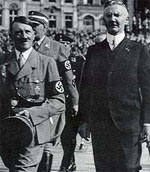
President of the Reichsbank Dr. Schacht . . . was forced to entertain serious doubts whether—in view of the increasingly radical trend in the policy on the Jews—it would be possible to achieve the economic targets set by the Fuehrer, finding work for the unemployed and reconstruction of the Wehrmacht (and obtaining raw materials from abroad) . . . Schacht rejected any suggestion that he might be called pro-Jewish. All he was doing was to point out the results for his field of operations of irresponsible incitement against the Jews.
1935 Austria: From a letter from Franz von Papen to Hitler (IMT Document 2248-PS): National Socialism must and will overpower the new Austrian ideology. If today it is contended in Austria that the NSDAP is only a centralized Reich German Party and therefore unable to transfer the spirit of thought of National Socialism to groups of people of a different political makeup, the answer must rightly be that the national revolution in Germany could not have been brought about in a different way. But when the creation of the people's community in the Reich will be completed, National Socialism could, in a much wider sense than this is possible through the present Party organization-at least apparently-certainly become the rallying point for all racially German units beyond the borders. The first time that I met Seyss-Inquart was in August 1935. We had a conversation which lasted a few minutes. A few days later I was arrested, and for six [?] months I was in the custody of the Austrian police. After my release in approximately April or May 1936 I met Seyss-Inquart again in Vienna and remained in contact with him after that.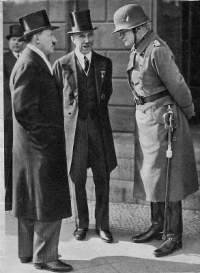
Spiritual progress in regard to Austria cannot be achieved today with any centralized tendency. If this recognition would once and for all be stated clearly from within the Reich, then it would easily become possible to effect a break-through into the front of the New Austria. A Nuremberg Party Day designated as 'The German Day' as in old times and the proclamation of a National Socialistic peoples' front would be a stirring event for all beyond the borders of the Reich. Such attacks would win us also the particularistic Austrian circles, whose spokesman, the legitimistic Count Dubsky, wrote in his pamphlet about the Anschluss: ‘The Third Reich will be with Austria, or it will not be at all. National Socialism must win it or perish if it is unable to solve this task.’ (IMT)
During the time that the Party was prohibited Seyss-Inquart was not a member of the NSDAP, but he was a member of the Styrian Home Guard. That organization was, I think in 1933 by agreement between its leaders and Habicht, taken over entirely as part of the Austrian NSDAP. After the Anschluss that transfer was not recognized by the Reich Treasurer, Schwarz, and the members of the Styrian Home Guard, among them, I believe, Dr. Seyss-Inquart, had to apply again for membership.
1937 Holocaust: Blood libel: The trial of five German Jews accused of a 1929 ritual murder opens in Bamburg:
[Blood libels are] false accusations that Jews use human blood in certain of their religious rituals. Although the first known instance of blood libel is found in the writings of Apion, an early 1st century pagan Greco-Egyptian who claimed that the Jews sacrificed Greek victims in the Temple, no further incidents are recorded until the 12th century, when blood libels began to proliferate in Christian Europe. Blood libel accusations have often asserted that the blood of Christian children is especially coveted, and historically blood libel claims have often been made to account for otherwise unexplained deaths of children. In some cases, the alleged victim of human sacrifice, child or adult, has become venerated as a martyr, a holy figure around whom a martyr cult might arise. A few of these have been canonized as saints. Although broadly discredited, these libels have persisted among some segments of Christian and Islamic believers to the present time
1938 Holocaust: All Jewish street names in Germany are changed and given new names. (THP)
1939 Various:

Resistance: Dietrich Bonhoeffer returns to Germany and joins the political resistance:
During World War II, Bonhoeffer played a key leadership role in the Confessing Church, which opposed the anti-semitic policies of Adolf Hitler. He was among those who called for wider church resistance to Hitler's treatment of the Jews. While the Confessing Church was not large, it represented a major source of Christian opposition to the Nazi government in Germany. In 1939, Bonhoeffer joined a secret group of high-ranking military officers based in the Abwehr, or Military intelligence Office, who wanted to overthrow the National Socialist regime by killing Hitler
1939 German Foreign Office Memorandum:
In accordance with my instructions I invited the Soviet Chargé, Astakhov, and Babarin, the chief of the Soviet trade mission here, to Ewest for dinner last night. The Russians stayed until about half past twelve. The Russians started the talk about the political and economic problems which interest us in a very lively and interested manner so that an informal and thorough discussion of the individual topics mentioned by the Reich Foreign Minister was possible. The following parts of the conversation should be stressed:
1. Referring to remarks by Astakhov about close collaboration and community of interests in foreign policy which formerly existed between Germany and Russia, I explained that such collaboration appeared attainable to me now, if the Soviet Government considered it desirable. I could visualize three stages:
Stage One: The re-establishment of collaboration in economic affairs through the credit and commercial treaty which is to be concluded.
Stage Two: The normalization and improvement of political relations. This included, among other things, respect for the interests of the other party in the press and in public opinion and respect for the scientific and cultural activities of the other country. The official participation by Astakhov in German Art Day at Munich, or the invitation of German delegates to the Agricultural Exhibition in Moscow, as suggested by him to the State Secretary, could, for instance, be included under this heading.
Stage Three would be the re-establishment of good political relations, either a return to what had been in existence before the Berlin Treaty (Treaty of friendship and neutrality between Germany and the Soviet Union, signed at Berlin April 24, 1926.) or a new arrangement which took account of the vital political interests of both parties. This stage three appeared to me within reach, because controversial problems of foreign policy, which would exclude such a relationship between the two countries, did not, in my opinion, exist in the whole area from the Baltic Sea to the Black Sea and the Far East. In addition, despite all the differences in Weltanschauung, there was one thing in common in the ideology of Germany, Italy, and the Soviet Union: opposition to the capitalist democracies. Neither we nor Italy had anything in common with the capitalism of the West. Therefore it would appear to us quite paradoxical if the Soviet Union, as a Socialist state, were to side with the Western democracies.
2. With the strong agreement of Babarin, Astakhov designated the way of rapprochement with Germany as the one that corresponded with the vital interests of the two countries. However, he emphasized that the tempo must probably be very slow and gradual. The Soviet Union had been forced to feel itself most seriously menaced by the National Socialist foreign policy. We had appropriately called our present political situation encirclement. That was exactly how, after the events of September of last year, the political situation had appeared to the Soviet Union. Astakhov mentioned the Anti-Comintern Pact and our relations to Japan, and Munich and the free hand in Eastern Europe that we gained there, the political consequences of which were bound to be directed against the Soviet Union. Our assumption that the Baltic countries and Finland, as well as Rumania, were in our sphere of interest completed for the Soviet Government the feeling of being menaced. Moscow could not quite believe in a shift of German policy with respect to the Soviet Union. A change could only be expected gradually.
3. In my reply I pointed out that German policy in the East had taken an entirely different course in the meantime. On our part there could be no question of menacing the Soviet Union; our aims were in an entirely different direction. Molotov, himself, in his last speech had called the Anti-Comintern Pact camouflage for an alliance aimed against the Western democracies. He was acquainted with the Danzig question, and the related Polish question. I saw in these anything but a clash of interests between Germany and the Soviet Union. That we would respect the integrity of the Baltic countries and of Finland had become sufficiently clear through our non-aggression pacts and our non-aggression offers. Our relationship to Japan was that of a well-founded friendship, which was not, however, aimed against Russia. German policy was aimed against England. That was the decisive factor. As I had stated previously, I could imagine a far-reaching compromise of mutual interests with due consideration for the problems which were vital to Russia. However, this possibility was barred the moment the Soviet Union, by signing a treaty, sided With England against Germany. The Soviet Union would then have made its choice, and then would only be able to share the German opposition with England. Only for this reason would I have any objection to his view that the tempo of a possible understanding between Germany and the Soviet Union had to be slow. The time was opportune now, but would not be after the conclusion of a pact WITH London. This would have to be considered in Moscow. What could England offer Russia? At best, participation in a European war and the hostility of Germany, but not a single desirable end for Russia. What could we offer, on the other hand? Neutrality and staying out of a possible European conflict and, if Moscow wished, a German-Russian understanding on mutual interests which, just as in former times, would work out to the advantage of both countries.
4. During the subsequent discussion Astakhov came back again to the question of the Baltic countries and asked whether, besides economic penetration, we had more far-reaching political aims there. He also took up the Rumanian question seriously. As to Poland, he stated that Danzig would return to the Reich in one way or another and that the Corridor question would have to be solved somehow in favor of the Reich. He asked whether the territories which once belonged to Austria were not also tending toward Germany, particularly the Galician and Ukrainian territories. After describing our commercial relations to the Baltic countries, I confined myself to the statement that no German-Russian clash of interests would result from all these questions. Moreover, the settlement of the Ukrainian question had shown that we did not aim at anything there that would endanger Soviet interests.
5. There was a rather extensive discussion about the question of why National Socialism had sought the enmity of the Soviet Union in the field of foreign policy. In Moscow, they had never been able to understand this. They had always had full understanding for the domestic opposition to Communism. I took advantage of this opportunity to explain in detail our opinion concerning the change in Russian Bolshevism during recent years. The antagonism of National Socialism resulted naturally from the fight against the Communist Party of Germany which depended upon Moscow and was only a tool of the Comintern. The fight against the German Communist Party had long been over. Communism had been eradicated in Germany. The importance of the Comintern had been overshadowed by the Politbureau, where all entirely different policy was being followed now than at the time when the Comintern dominated. The amalgamation of Bolshevism with the national history of Russia, which expressed itself in the glorification of great Russian men and deeds (celebration of the battle of Poltava, Peter the Great, the battle on Lake Peipus, Alexander Nevski), had really changed the international face of Bolshevism, as we see it, particularly since Stalin had postponed world revolution indefinitely. In this state of affairs we saw possibilities today which we had not seen earlier, provided that no attempt was made to spread Communist propaganda in any form in Germany.
6. At the end Astakhov stressed how valuable this conversation had been to him. He would report it to Moscow, and he hoped that it would have visible results in subsequent developments there. The question of the commerce and credit treaty was discussed in detail.
7. After the statements of the Russians I had the impression that Moscow had not yet decided what they want to do. The Russians were silent about the status and chances of the English pact negotiations. Considering all this, it looks as if Moscow, for the time being, is following a policy of delay and postponement toward us as well as England in order to defer decisions the importance of which they understand completely. Therefore the receptive attitude of the Russians after the various talks, particularly the attitude of Molotov; therefore the delay in the protracted economic negotiations, in which the Russians absolutely reserve the tempo to themselves; therefore most likely also the retention of Ambassador Merekalov in Moscow. As a further handicap, there is the excessive distrust, not only toward us but toward England as well. From our point of view it may be considered a noteworthy success that Moscow, after months of negotiation with England, still remains uncertain as to what she ought to do eventually.
1940 Various:
World War II: Hitler, hoping that Britain will now accept German control of the Continent, again seeks peace. Again, Britain shuns his overtures. (Grolier)
With France fallen, Hitler assumed that Britain would make peace. The British rejected any overtures on the part of the Germans and so in August 1940, Hitler ordered his Luftwaffe to conduct massive airstrikes against Britain.
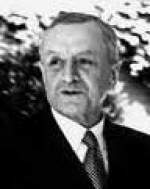
Fritz Thyssen is arrested by the Germans in France and is later sent to a concentration camp. He will not be liberated until 1945. Meanwhile, his book, I Paid Hitler, is published in America. Thyssen:
My disappointment with Hitler dates almost from the very beginning of the Nazi regime. Hitler's eviction of the conservative elements from the government, of which he was the head, gave me some cause for anxiety. But I was inhibited by the impression produced by the burning of the Reichstag. Today I know that the crime was staged by the National Socialists themselves, in order to gain more power. Throughout Germany, they spread the fear of armed Communist rebellion. They induced the belief that this arson, organized by themselves, was the signal for a second Red revolution which would have precipitated the country into the bloody convulsions of civil war. I then believed that by their energy Hitler and Goering had saved the country. Today I know that I, like millions of others, was deceived. But almost all Germans are still in the same state of deception, if so be they inhabit the Reich. In order to learn the truth I had to go abroad. The burning of the Reichstag, organized by Hitler and Goering, was the first step in a colossal political swindle.
Euthanasia: Professor Lenz expresses his views on "euthanasia" in writing:
Detailed discussion of so-called euthanasia . . . can easily lead to confusion about whether or not we are really dealing with a matter which affects the safeguarding of our hereditary endowment. I should like to prevent any such discussion. For, in fact, this matter is a purely humanitarian problem." Note: Between 1939 and 1941, Professor Lenz had proposed the following formulation for Article 2.1 of the proposed law on euthanasia "The life of a patient, who otherwise would need lifelong care, may be ended by medical measures of which he remains unaware." (THP)
As early as 1917, Lenz had envisioned Germany's future in expanded eastern territories. Viewing Slavs as an undesirable, racial element that threatened to "overrun the superior [German] Volk," Lenz advised the SS in 1940: "The resettlement of the eastern zone is . . . the most consequential task of racial policy. It will determine the racial character of the population living there for centuries to come.
Euthanasia: German-Jewish mental patients are murdered in the Brandenburg extermination institute. Dr. Jaspersen of Bethel attempts to persuade the heads of departments of psychiatry in German universities to make a collective protest against euthanasia. These professors make no move. Professor Ewald remains an isolated protester. (THP)
During 1790, a home for poor people was founded in Brandenburg (near Berlin). From 1820 on, the complex of buildings was extended and then used as a prison. In 1931 the Brandenburg prison was closed because a new one was built in Brandenburg-Goerden. From 24 August 1933 until 2 February 1934 the Nazis used the buildings as concentration camp and police barracks. Up to 1,200 prisoners were locked up in the cells. Until 1939 some buildings were converted into a euthanasia killing center.
1941 World War II: Various:
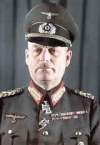
From an order signed by Wilhelm Keitel:
In accordance with the regulations concerning classified material the following offices will destroy all copies of the Fuehrer's decree of 13 May 1941 . . . .
a) All of files up to the rank of 'general commands' inclusive
b) group commands of the armored troops
c) army commands and offices of equal rank, if there is an inevitable danger that they might fall into the hands of unauthorized persons. The validity of the decree is not affected by the destruction of the copies. In accordance with Paragraph III, it remains the personal responsibility of the commanding officers to see to it that the offices and legal advisers are instructed in time and that only the sentences are confirmed which correspond to the political intentions of the Supreme Command. This order will be destroyed together with the copies of the Fuehrer's decree.
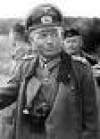
Barbarossa: Guderian's panzers are ordered by Hitler to turn south, away from Moscow, in order to conquer Russia's economic centers. Guderian's 2nd Panzer Army is renamed Armeegruppe Guderian in recognition of his successes. Further, he is no longer subordinate to Kluge, but answers directly to Bock, Commander of Army Group Centre. (Clark II)
Japanese forces land in Indochina:
President Roosevelt was determined "to eliminate the French from Indochina at all costs," and had pressured the Allies to establish an international trusteeship to administer Indochina until the nations there were ready to assume full independence. This obdurate anti-colonialism, in Fall's view, led to cold refusal of American aid for French resistance fighters, and to a policy of promoting Ho Chi Minh and the Viet Minh as the alternative to restoring the French bonds. [See: Countdown to Infamy: Timeline to Pearl Harbor.]
1942 World War II: Barbarossa: German troops take Bataysk, and 6th Armee launches an attack to destroy a bridgehead west of Stalingrad at Kalach.
[See: Was Adolf Hitler a 'Great' Military Leader.]1943: World War II: Various:

Stalin issues Order No. 227—outlawing cowards:
On this day in 1943, Joseph Stalin, premier and dictator of the Soviet Union, issues Order No. 227, what came to be known as the "Not one step backward" order, in light of German advances into Russian territory. The order declared, "Panic makers and cowards must be liquidated on the spot. Not one step backward without orders from higher headquarters! Commanders...who abandon a position without an order from higher headquarters are traitors to the Fatherland."
Early German successes against Russia had emboldened Hitler in his goal of taking Leningrad and Stalingrad. But the German attack on Stalingrad, thought foolhardy by Hitler's generals, because of Russia's superior manpower and the enormous drain on German resources and troop strength, was repulsed by a fierce Soviet fighting force, which had been reinforced with greater numbers of men and materials. The Germans then turned their sights on Leningrad. Stalin needed to "motivate" both officers and civilians alike in their defense of Leningrad—hence, Order No. 227. But it was hardly necessary. On the same day the order was given, Russian peasants and partisans in the Leningrad region killed a German official, Adolf Beck, whose job was to send agricultural products from occupied Russia to Germany or German troops. The Russian patriots also set fire to the granaries and barns in which the stash of agricultural products was stored before transport. A partisan pamphlet issued an order of its own: "Russians! Destroy the German landowners. Drive the Germans from the land of the Soviets!" (History.com)
Hamburg firestorm July 27-28: The RAF drops thousands of pounds of incendiary bombs of Hamburg, creating a "firestorm" for the first time. A firestorm occurs when the fires in a given area become so intense that they devour all oxygen nearby, creating hurricane force winds as they suck more oxygen in, feeding the fires and moving them along at great speed. Note: Three-quarters of Hamburg is burned to the ground, while some 25,000 German civilians are killed and 800,000 left homeless.
Italy: The liberation of Mussolini, the occupation of Rome and all of Italy, and the capture of the Italian fleet is decided upon by the German High Command. Mussolini himself is transferred from Rome to the Island of Ponza. Heavy fighting continues in Sicily.
1944 World War II: Various:
Poland: Several thousand AK soldiers are arrested by Soviets after laying down arms:
The Soviets behaved in a hostile manner towards the Home Army units. After capturing an area they imprisoned the officers and men and transported them to camps deep in Russia. The Soviets decided to destroy AK and the civilian administration just because they represented the desire of the Polish people for independence. At the end of July 1944 the developments on the Eastern Front indicated an early entrance of Soviet troops into Warsaw. The Commander AK and Chief Delegate, in consultation with the Council of National Unity, determined that the capital city of Poland should be freed from the Germans by the action of Polish soldiers. The government-in-exile in London was advised about the readiness to start the battle . . . .
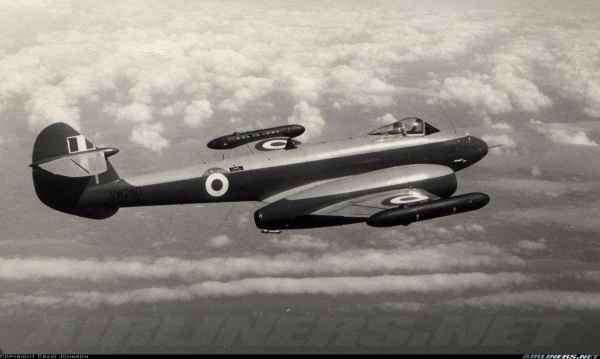
Jet propulsion: The first British jet fighter is used in combat, the Gloster Meteor.
Churchill to General Montgomery:
It was announced from SHAEF last night that the British had sustained 'quite a serious setback.' I am not aware of any facts that justify such a statement . . . . It certainly seems very important for the British Army to strike hard and win through; otherwise there will grow comparisons between the two armies which will lead to dangerous recriminations and affect the fighting value of the Allied organization.
General Montgomery to Churchill:
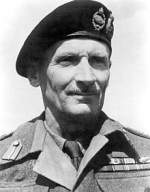
I know of no 'serious setback.' Enemy has massed great strength in area south of Caen to oppose our advance in that quarter. Very heavy fighting took place yesterday and the day before, and as a result the troops of the Canadian Corps were forced back 1000 yards from the farthest positions they had reached...The enemy strength south of Caen astride the Falaise road is now very great, and greater than anywhere else on the whole Allied front. I therefore do not intend to attack him there. Instead I am planning to keep the enemy forces tied to that area and to put in a very heavy blow with six divisions from the Caumont area, where the enemy is weaker. This blow will tend to make the American progress quicker.
The US continues to make progress to complete the liberation of Guam:
The Allied plan for the invasion of the Marianas called for heavy preliminary bombardment, first by carrier aircraft and planes based in the Marshall Islands to the east, then once air superiority was gained, close bombardment by battleships. Guam was chosen as a target because its large size made it suitable as a base for supporting the next stage of operations.
Russian front: Soviet forces recapture Dunaburg, Bialystok and Lvov. Soviet forces secure a major bridgehead over the Magnuszew River.
1946 Nuremberg Tribunal: The Prosecution continues its summation in the Major War Criminals Trial: Some it may be are more guilty than others; some played a more direct and active part than others in these frightful crimes. But when those crimes are such as you have to deal with here-slavery, mass murder and world war, when the consequences of the crimes are the deaths of over 20 million of our fellow men, the devastation of a continent, the spread of untold tragedy and suffering throughout the world, what mitigation is it that some took less part than others, that some were principals and others mere accessories. What matters it if some forfeited their lives only a thousand times whilst others deserved a million deaths?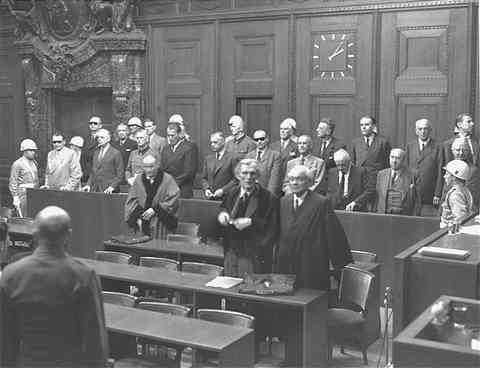
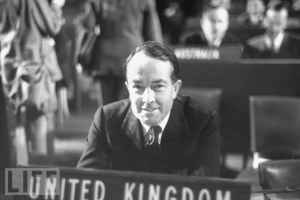
In one way the fate of these men means little: Their personal power for evil lies forever broken; they have convicted and discredited each other and finally destroyed the legend they created round the figure of their leader. But on their fate great issues must still depend, for the ways of truth and righteousness between the nations of the world, the hope of future international co-operation in the administration of law and justice are in your hands. This Trial must form a milestone in the history of civilization, not only bringing retribution to these guilty men, not only marking that right shall in the end triumph over evil, but also that the ordinary people of the world-and I make no distinction now between friend or foe-are not determined that the individual must transcend the state. The state and the law are made for men, that through them he may achieve a fuller life, a higher purpose, and a greater dignity. States may be great and powerful. Ultimately the rights of men, made as all men are made in the image of God, are fundamental. When the state, either because as here its leaders have lusted for power and place, or under some specious pretext that the end may justify the means, affronts these things, they may for a time become obscured and submerged. But they are immanent and ultimately they will assert themselves more strongly still, their immanence more manifest.
And so, after this ordeal to which mankind has been submitted, mankind itself-struggling now to re-establish in all the countries of the world the common simple things-liberty, love, understanding-comes to this Court and cries: "These are our laws; let them prevail!" [For the full text of today's proceedings, Click here.]
1947 A story appears in the El Paso Times: "Scientists Not Seeking Citizenship". In response to public criticisms that the German rocket scientists were applying for citizenships, a State Department spokesman announces that none had actually applied for citizenship, and that none of them would even be eligible to do so for two more years. See: November 5, 1947. (Piszkiewicz)
1953 Armistice ends the Korean War: After three years of a bloody and frustrating war, the United States, the People's Republic of China, North Korea, and South Korea agree to an armistice, bringing the Korean War to an end. The armistice ended America's first experiment with the Cold War concept of "limited war." [For further details, Click here.]
1955 Austria regains its sovereignty:
The treaty forbade unification with Germany or restoration of the Habsburgs and provided safeguards for Austria's Croat and Slovene minorities. Austrian neutrality and a ban on foreign military bases in Austria were later incorporated into the Austrian constitution by the Law of October 26, 1955. The 40,000 Soviet troops in Austria were withdrawn by late September. The small number of Western troops that remained were withdrawn. [See: Austria: The Other Germany.]
1980 Death:Former Shah of Iran:

Mohammad Reza Pahlavi, the former shah of Iran, dies of cancer while in exile in Egypt.
Mohammad Reza was enthroned as shah of Iran in 1941, after his father was forced to abdicate by British and Soviet troops. The new shah promised to act as a constitutional monarch but often meddled in the elected government's affairs. After a communist plot against him was thwarted in 1949, he took on even more powers. However, in the early 1950s, the shah was eclipsed by Mohammad Mosaddeq, a zealous Iranian nationalist who convinced the Parliament to nationalize Britain's extensive oil interests in Iran. Mohammad Reza, who maintained close relations with Britain and the United States, opposed the decision. Nevertheless, he was forced in 1951 to appoint Mosaddeq premier, and two years of tension followed.
In August 1953, Mohammad Reza attempted to dismiss Mosaddeq, but the premier's popular support was so great that the shah himself was forced out of Iran. A few days later, British and U.S. intelligence agents orchestrated a stunning coup d'etat against Mosaddeq, and the shah returned to take power as the sole leader of Iran. He repealed Mosaddeq's legislation and became a close Cold War ally of the United States in the Middle East.
In 1963, the shah launched his "White Revolution," a broad government program that included land reform, infrastructure development, voting rights for women, and the reduction of illiteracy. Although these programs were applauded by many in Iran, Islamic leaders were critical of what they saw as the westernization of Iran. Ruhollah Khomeini, a Shiite cleric, was particularly vocal in his criticism and called for the overthrow of the shah and the establishment of an Islamic state. In 1964, Khomeini was exiled and settled across the border in Iraq, where he sent radio messages to incite his supporters.
The shah saw himself foremost as a Persian king and in 1971 held an extravagant celebration of the 2,500th anniversary of the pre-Islamic Persian monarchy. In 1976, he formally replaced the Islamic calendar with a Persian calendar. Religious discontent grew, and the shah became more repressive, using his brutal secret police force to suppress opposition. This alienated students and intellectuals in Iran, and support for the exiled Khomeini increased. Discontent was also rampant in the poor and middle classes, who felt that the economic developments of the White Revolution had only benefited the ruling elite. In 1978, anti-shah demonstrations broke out in Iran's major cities.
On September 8, 1978, the shah's security force fired on a large group of demonstrators, killing hundreds and wounding thousands. Two months later, thousands took to the streets of Tehran, rioting and destroying symbols of westernization, such as banks and liquor stores. Khomeini called for the shah's immediate overthrow, and on December 11 a group of soldiers mutinied and attacked the shah's security officers. His regime collapsed, and on January 16, 1979, he fled the country. Fourteen days later, the Ayatollah Khomeini returned after 15 years of exile and took control of Iran.
The shah traveled to several countries before entering the United States in October 1979 for medical treatment of his cancer. In Tehran, Islamic militants responded on November 4 by storming the U.S. embassy and taking the staff hostage. With the approval of Khomeini, the militants demanded the return of the shah to Iran to stand trial for his crimes. The United States refused to negotiate, and 52 American hostages were held for 444 days. Mohammad Reza Shah Pahlavi died in Egypt in July 1980. (History.com)
1987 John Demjanjuk—an accused Nazi death camp guard nicknamed "Ivan the Terrible"—testifies in Israel:
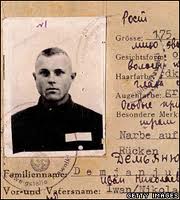
The early adulthood of Ivan Demjanjuk is a far cry from the John Demjanjuk myth, that of an old man thrust into a whirlpool of false accusations and legal procedures unfettered by authentic innocence. One thing is certain. Demjanjuk worked for the SS as a guard in at least one death camp, and probably more than one. This was acknowledged by Demjanjuk's attorneys who, in a defensive move, established his Nazi past during the trial itself.
2003 Death: Bob Hope:
On this day in 2003, the legendary actor-comedian Bob Hope dies at age 100 in Toluca Lake, California. Known for entertaining American servicemen and women for more than five decades, Hope had a career that spanned the whole range of 20th century entertainment, from vaudeville to Broadway musicals to radio, television and movies . . . .
Starting with World War II, Hope began entertaining American troops at military bases around the world. His USO tours traveled to military bases during times of war (Vietnam, the Persian Gulf), as well as times of peace. He was so beloved for his work with the military for more than half a century that Congress passed a resolution in 1997 making Hope an honorary veteran. It was one of the countless honors that Hope received throughout his career. In 1998, he was granted honorary knighthood by Queen Elizabeth. Edited by Levi Bookin (Copy editor) Click to join 3rdReichStudies Disclaimer: This site includes diverse and controversial materials—such as excerpts from the writings of racists and anti-Semites—so that its readers can learn the nature and extent of hate and anti-Semitic discourse. It is our sincere belief that only the informed citizen can prevail over the ignorance of Racialist "thought." Far from approving these writings, this site condemns racism in all of its forms and manifestations.
levi.bookin@gmail.com










Fair Use Notice: This site may contain copyrighted material the use of which has not always been specifically authorized by the copyright owner. We are making such material available in our efforts to advance understanding of historical, political, human rights, economic, democracy, scientific, environmental, and social justice issues, etc. We believe this constitutes a "fair use" of any such copyrighted material as provided for in section 107 of the US Copyright Law. In accordance with Title 17 U.S.C. Section 107, the material on this site is distributed without profit to those who have expressed a prior interest in receiving the included information for research and educational purposes. If you wish to use copyrighted material from this site for purposes of your own that go beyond 'fair use', you must obtain permission from the copyright owner.
Please Note: The list-owner and moderators of 3rdReichStudies are not responsible for, and do not necessarily approve of, the random ads placed on our pages by our web server. They are, unfortunately, the price one pays for a 'free' website.



